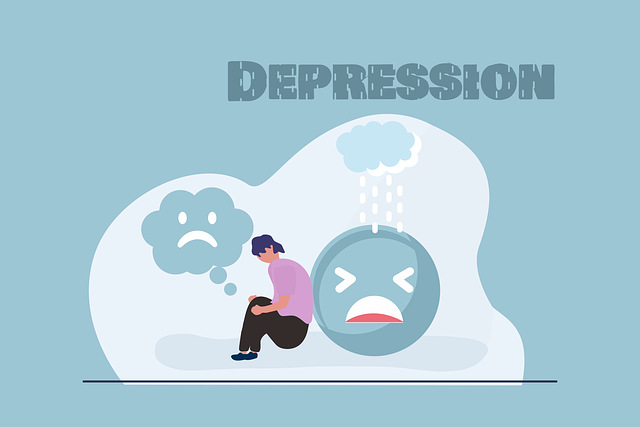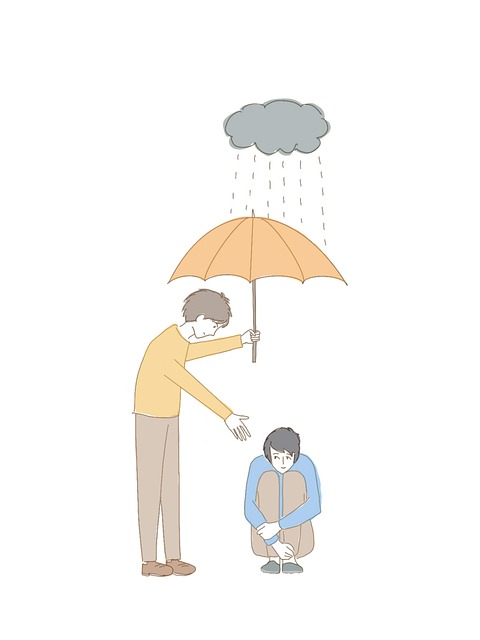Mental health counseling is a vital tool for managing bipolar disorder, offering individuals a safe space to understand and navigate their emotional patterns. Through personalized therapy sessions, patients learn coping strategies to manage manic and depressive episodes, improve mood regulation, and enhance overall well-being. Effective approaches like CBT and DBT, combined with medication, provide comprehensive treatment. Local support networks and community resources offer tailored counseling and safe spaces for sharing experiences, fostering resilience. Integrating mental health counseling with medication empowers individuals to take an active role in their healing through self-care routines, including physical activity, healthy eating, and stress management techniques.
Bipolar disorder, a complex mood condition, significantly impacts daily life, often characterized by extreme highs (mania) and lows (depression). This article explores holistic strategies for managing bipolar, emphasizing local therapy options. We delve into various therapeutic approaches, including the pivotal role of mental health counseling, which helps individuals navigate their symptoms. By understanding local support networks and integrating medication with self-care routines, those affected can achieve better stability and an improved quality of life.
Understanding Bipolar Disorder and Its Impact on Daily Life

Bipolar disorder is a serious mental health condition characterized by extreme mood swings, ranging from intense mania to deep depression. Individuals with bipolar experience significant changes in energy, activity levels, and emotional states, which can significantly impact their daily lives. During manic episodes, they may feel euphoric, have excessive energy, and engage in risky behaviors. In contrast, depressive episodes bring feelings of sadness, hopelessness, and fatigue, often leading to social withdrawal and difficulties with everyday tasks. This cyclical nature of the disorder can make it challenging for those affected to maintain a sense of stability and normalcy.
Mental health counseling plays a crucial role in managing bipolar disorder. Through various therapeutic approaches, individuals can learn to recognize and manage their mood episodes more effectively. Counseling provides a safe space for patients to explore triggers, develop coping strategies, and enhance their overall well-being. With the support of mental health professionals, those with bipolar can gain insights into their condition, improve symptom management, and lead fulfilling lives.
The Role of Mental Health Counseling in Bipolar Management

Mental health counseling plays a pivotal role in managing bipolar disorder, offering individuals a safe and supportive space to navigate their emotional landscapes. Through one-on-one sessions or group therapy, counselors help patients gain insights into their condition’s patterns and triggers. They teach coping strategies to manage symptoms during manic or depressive episodes, promoting better mood regulation.
Counseling provides an opportunity for individuals with bipolar disorder to develop personalized strategies to improve their mental health. It fosters self-awareness, enhances problem-solving skills, and strengthens resilience against relapses. By integrating counseling into their treatment plans, many patients achieve a greater sense of control, improved overall well-being, and a higher quality of life.
Types of Therapy Approaches for Bipolar Disorder

In navigating bipolar disorder, individuals often benefit from various therapy approaches designed to stabilize moods, manage symptoms, and improve overall well-being. One common and effective method is mental health counseling, which can take several forms tailored to individual needs. For instance, cognitive behavioral therapy (CBT) helps patients identify and change negative thought patterns and behaviors contributing to mood episodes. This approach equips individuals with coping strategies to manage stress and triggers effectively.
Additionally, dialectical behavior therapy (DBT), designed originally for borderline personality disorder, has proven beneficial for bipolar disorder management. DBT combines cognitive techniques with mindfulness practices, teaching individuals how to regulate emotions, improve interpersonal effectiveness, and enhance distress tolerance. These therapeutic interventions work in conjunction with medication to provide a comprehensive treatment plan, addressing the emotional and psychological aspects of bipolar disorder.
Local Support Networks and Community Resources for Individuals with Bipolar

For individuals navigating bipolar disorder, local support networks and community resources play a pivotal role in their journey to stability and well-being. These networks offer more than just a listening ear; they provide a sense of belonging and access to specialized mental health counseling tailored to the unique challenges of bipolar management. Support groups, led by professionals or peer mentors who understand the intricacies of the condition, serve as safe spaces for individuals to share experiences, gain insights, and learn coping strategies from others on similar paths.
Community resources extend beyond these groups, encompassing a range of services such as crisis intervention centers, peer-to-peer mentoring programs, and accessible mental health clinics. These initiatives ensure that individuals with bipolar disorder have convenient access to care, fostering a supportive environment that promotes resilience and empowers individuals to actively participate in their own mental health management.
Integrating Medication with Therapy for Optimal Treatment

In the pursuit of optimal treatment for bipolar disorder, integrating medication with therapy stands as a powerful strategy. Mental health counseling plays a pivotal role in this combined approach by providing individuals with personalized support and coping mechanisms tailored to their unique experiences. Through various therapeutic modalities, counselors help patients navigate mood episodes, develop strategies to manage stress, and enhance overall emotional well-being.
This integration ensures a holistic treatment plan that addresses both the symptoms and underlying causes of bipolar disorder. Medication manages the severity and frequency of episodes, while therapy equips individuals with the tools to understand their condition, improve self-awareness, and build resilience. Together, these modalities offer a more effective and sustainable path towards stabilizing moods and improving overall quality of life.
Strategies for Building a Sustainable Self-Care Routine Alongside Therapy

Building a sustainable self-care routine alongside regular sessions of mental health counseling is paramount for managing bipolar disorder effectively. It empowers individuals to take an active role in their healing process, providing tools and strategies to navigate mood episodes and promote overall well-being. A structured routine can include dedicated time for physical activity, healthy eating, adequate sleep, and stress management techniques such as meditation or mindfulness exercises. These practices not only support emotional stability but also foster a sense of control and self-empowerment.
Integrating self-care into daily life requires consistency and flexibility. It’s important to start small, identifying a few manageable habits that can be consistently maintained. Gradually, individuals can expand their routine, incorporating more activities that resonate with their needs and preferences. Regularly reviewing and adjusting the self-care plan in collaboration with a mental health counselor ensures its relevance and effectiveness, ultimately contributing to a more balanced and fulfilling life.
